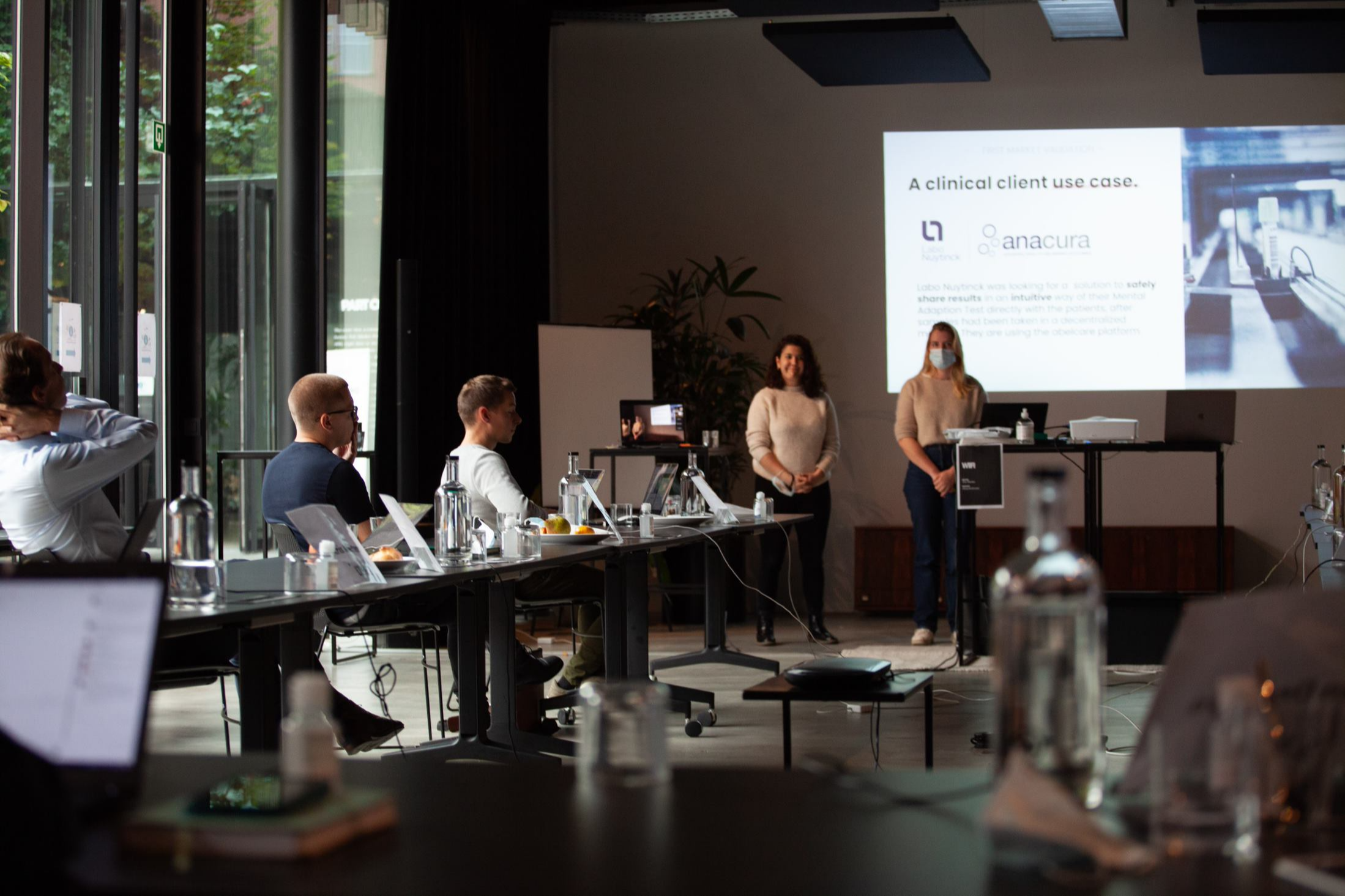
How to best prepare for your
imec.istart pitch
Congratulations! You made it to the second phase of the imec.istart selection round.
You are invited to pitch your project in front of the imec.istart Fund and partner jury!
There is only a limited number of startups that can join the program. This means you are competing with other startups. So, make sure to pull out all the tricks you have up your sleeves to maximise your chance of winning.
We gladly share some information about the pitching process and give you some tips to up your odds for getting selected.
Which criteria are used by our jury?
The jury are taking into account the following criteria to score your pitch:
An idea that
- is highly technically or technologically innovative
- responds to a clear customer need
- is backed by the outline of a business model
- has at least one clear and strong differentiator
- is ready to compete in a defined and sufficiently large market
A core team that
- is committed and willing to bear the entrepreneurial risk
- can push technological boundaries
- embraces external coaching
- is ready to go global
- can show a finished proof-of-concept of the technology, including a sketch of the required actions regarding freedom to operate (FPO) and intellectual property rights (IPR)
A financially viable business that
- envisions the possibility of a break-even within two to three years
- aims at a sales figure of at least 1 million euro within three years and 10 million euro in the long term
Those last two points address the financial viability of your startup. So, you might think that they are more important than the others. Actually, the opposite is true. If two proposals are equally strong, imec.istart will choose the one that excels in technological innovation and business orientation. Furthermore, projects with a high societal impact are always eligible, even if they do not score particularly high on the last two financial criteria.
How to nail your pitch in front of our jury?
We gladly share some tips from the imec.istart team, who have observed numerous pitches of both accepted and rejected startups.
- For hardware start-ups: bring your hardware (prototype), let the jury feel and see it
- If your startup is pitching for a second submission: underline where you have made progress.
- Do not come alone, we invest in teams.
- Live demos are brave, we appreciate courage.
- Never lose the jury out of sight. Eye contact is particularly important but do not just focus on one person.
- Show enthusiasm when you talk about your product. If you do not believe in your idea, why would the jury? Or why would the market? Also don't rush when speaking, speak calmly, but do not overdo it.
- Rehearse your time and stick to it
- Of course, we like to be flattered – but also especially important for you to make sure you get the value out of imec.istart: really think about the why imec.istart and include it in your pitch deck. Clear expectations on both sides make great marriages 😉
- Know your numbers and make sure they make sense (using Excel-bulls**t, you can easily growth from zero to 25 M EUR in 3 years or address a 25 billion EUR market with your product, but can this really be true?)
- Be cautious with mentioning ‘big names’ as customers, mentors or investors. If a big company is trying out your product for free, it is not a customer yet. If you once had coffee with someone, (s)he is not necessarily a structural mentor, an investor that you had a first meeting with is not necessarily really interested or committed to invest...
- Less is more: avoid slides with large chunks of text but try to use compelling visuals to tell your story. By using the right visuals, you can make your slides work for you instead of the other way around. If your slides are full of words, the jury will be busy reading them instead of listening to you.
- Always be prepared for technical issues, so if you want to use a video/demo in your slide deck, make sure you can convey your message in an alternative way in case it does not work.
- Answer the jury's questions and do not say 'That will be discussed in a few slides' or respond defensively to critical questions.
- Treat the Q&A at the end as an opportunity, not something to be afraid of. Make sure to answer to the point and do not try to bulls**t your way through it. For that reason, practice the Q&A so you are prepared for the questions coming your way. Tip: Pitch in front of lots of different people and write down every question asked. That way, you are building a complete list of all the questions that come up and you will be able to practice the answers and build a better narrative. There is a good chance that the jury will ask similar questions.